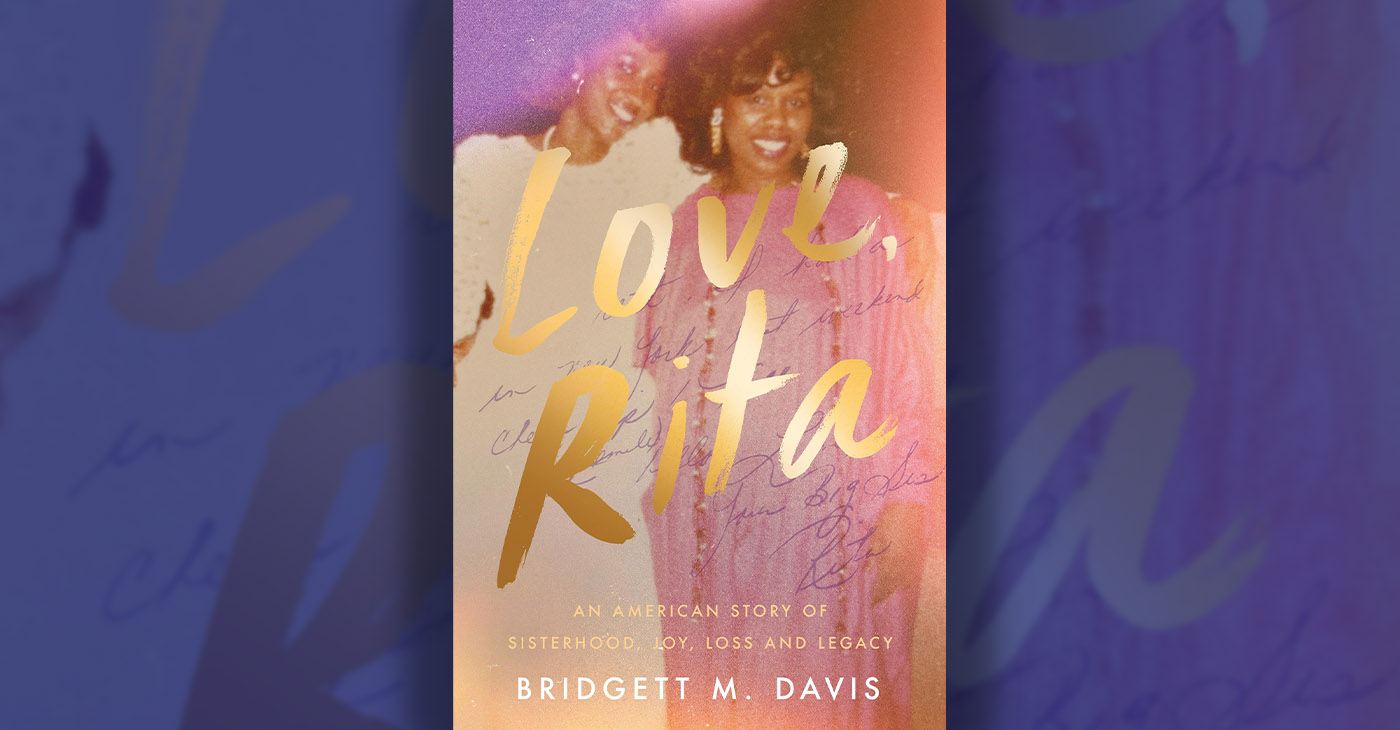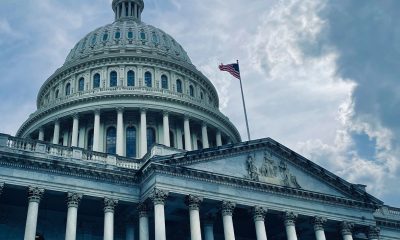Black History
Thomas L. Jennings, First African American to Receive a Patent
OAKLAND POST — Patents are important official documents as they are used to safeguard one’s inventions. The first U.S. patent was issued in 1790. But it wasn’t until March 3, 1821, that a patent was issued to an African American: Thomas L. Jennings. Jennings, born free in 1791, was awarded the patent for his discovery of a process called dry scouring, also known as dry cleaning. While working as a tailor, he discovered that customers needed a solution for soiled clothing, as certain fabrics were difficult to clean. After experimenting with various cleaning agents and solutions, Jennings soon discovered the successful blend for treatment.
By Tamara Shiloh
Patents are important official documents as they are used to safeguard one’s inventions. The first U.S. patent was issued in 1790. But it wasn’t until March 3, 1821, that a patent was issued to an African American: Thomas L. Jennings.
Jennings, born free in 1791, was awarded the patent for his discovery of a process called dry scouring, also known as dry cleaning. While working as a tailor, he discovered that customers needed a solution for soiled clothing, as certain fabrics were difficult to clean. After experimenting with various cleaning agents and solutions, Jennings soon discovered the successful blend for treatment.
Jennings’ patent however, was not without controversy. He was a free man and thus was able to gain exclusive rights to his invention and profit from it. But slaves during this time could not patent their own inventions; creations automatically became property of their owners. This regulation in 1793 patent law was based on the legal presumption: “the master is the owner of the fruits of the labor of the slave both manual and intellectual.” Slaves were not citizens and therefore could not own rights to their inventions.
While there were provisions through which an enslaved person could enjoy patent protection, their ability to seek out, receive, and defend a patent was unlikely.
It wasn’t until 1861 that patent rights were extended to enslaved people.
Pat Sluby, a retired U.S. patent examiner and author of “The Inventive Spirit of African Americans,” wrote of Jennings: “He is the earliest [African American receiver of a patent] that we have recorded … This is 44 years before the end of slavery.”
Sluby also described Jennings as: “A very good entrepreneur and businessman.”
It was during his early 20s that Jennings became a tailor. His skills were so admired that people near and far visited his shop to have their clothing altered or custom tailored. This response eventually allowed Jennings to open his own store on Church Street in lower Manhattan, which grew into one of the largest clothing stores in New York City.
Jennings earned a large amount of money as a tailor, and even more with his dry scouring invention. Most of the money funded his abolitionist activities as well as free the rest of his family from slavery.
He became a leader in the abolitionist and civil rights movement in New York City, was a founder and trustee of the Abyssinian Baptist Church, assistant secretary for the First Annual Convention of the People of Color in Philadelphia in 1831, and helped organize the Legal Rights Association in 1855, raising challenges to discrimination, and funding and organizing legal defenses for court cases.
Jennings died in New York City in 1856. Frederick Douglass wrote about his death, noting the importance of the patent Jennings received and that the patent recognized him as a “citizen of the United States,” a designation at the time that shocked many.
Activism
Four Bills Focus on Financial Compensation for Descendants of Enslaved People
This week, CBM examines four more bills in the package — each offering ways for Black Californians to receive restitution for past injustices — from housing assistance and reclamation of loss property to fairer pay and the establishment of a state agency charged with determining eligibility for reparations.

Edward Henderson
California Black Media
Last week, California Black Media (CBM) provided an update on four bills in the California Legislative Black Caucus (CLBC) 2025 Road to Repair package.
The 16 bills in the Black Caucus’s 2025 “Road to Repair” package focus on “repairing the generational harms caused by the cruel treatment of African American slaves in the United States and decades of systemic deprivation and injustice inflicted upon Black Californians,” said the CLBC in a release.
This week, CBM examines four more bills in the package — each offering ways for Black Californians to receive restitution for past injustices — from housing assistance and reclamation of lost property to fairer pay and the establishment of a state agency charged with determining eligibility for reparations.
Here are summaries of these bills, information about their authors, and updates on how far each one has advanced in the legislative process.
Assembly Bill (AB) 57
AB 57, introduced by Assemblymember Tina McKinnor (D-Inglewood), would require that at least 10% of the monies in the state’s home purchase assistance fund be made available to applicants who meet the requirements for a loan under the home purchase assistance program and are descendants of formerly enslaved people.
The Assembly Judiciary Committee is currently reviewing the legislation.
Assembly Bill (AB) 62
AB 62, also introduced by McKinnor, would require the Office of Legal Affairs to review, investigate, and make specific determinations regarding applications from people who claim they are the dispossessed owners of property seized from them because of racially motivated eminent domain. The bill would define “racially motivated eminent domain” to mean when the state acquires private property for public use and does not provide just compensation to the owner, due in whole or in part, to the owner’s race.
AB 62 is currently under review in the Judiciary Committee.
Senate Bill (SB) 464
SB 464, introduced by Sen. Lola Smallwood-Cuevas (D-Los Angeles), aims to strengthen the existing civil rights laws in California concerning employer pay data reporting. The bill mandates that private employers with 100 or more employees submit annual pay data reports to the Civil Rights Department. These reports must include detailed demographic information — including race, ethnicity, sex, and sexual orientation — pertaining to their workforce distribution and compensation across different job categories. Furthermore, beginning in 2027, public employers will also be required to comply with these reporting requirements.
The Senate Committee on Labor, Public Employment, and Rules is currently reviewing SB 464. A hearing is expected to be held on April 23.
Senate Bill (SB) 518
SB 518, introduced by Sen. Akilah Weber Pierson (D-San Diego), establishes the Bureau for Descendants of American Slavery to address and remedy the lasting harms of slavery and the Jim Crow laws suffered by Black Californians.
SB 518 is under review in the Senate Judiciary Committee. A hearing is expected to be held on April 22.
Arts and Culture
BOOK REVIEW: Love, Rita: An American Story of Sisterhood, Joy, Loss, and Legacy
When Bridgett M. Davis was in college, her sister Rita was diagnosed with lupus, a disease of the immune system that often left her constantly tired and sore. Davis was a bit unfazed, but sympathetic to Rita’s suffering and also annoyed that the disease sometimes came between them. By that time, they needed one another more than ever.

By Terri Schlichenmeyer
Author: Bridgett M. Davis, c.2025, Harper, $29.99, 367 Pages
Take care.
Do it because you want to stay well, upright, and away from illness. Eat right, swallow your vitamins and hydrate, keep good habits and hygiene, and cross your fingers. Take care as much as you can because, as in the new book, “Love, Rita” by Bridgett M. Davis, your well-being is sometimes out of your hands.
It was a family story told often: when Davis was born, her sister, Rita, then four years old, stormed up to her crying newborn sibling and said, ‘Shut your … mouth!’
Rita, says Davis, didn’t want a little sister then. She already had two big sisters and a neighbor who was somewhat of a “sister,” and this baby was an irritation. As Davis grew, the feeling was mutual, although she always knew that Rita loved her.
Over the years, the sisters tried many times not to fight — on their own and at the urging of their mother — and though division was ever present, it eased when Rita went to college. Davis was still in high school then, and she admired her big sister.
She eagerly devoured frequent letters sent to her in the mail, signed, “Love, Rita.”
When Davis was in college herself, Rita was diagnosed with lupus, a disease of the immune system that often left her constantly tired and sore. Davis was a bit unfazed, but sympathetic to Rita’s suffering and also annoyed that the disease sometimes came between them. By that time, they needed one another more than ever.
First, they lost their father. Drugs then invaded the family and addiction stole two siblings. A sister and a young nephew were murdered in a domestic violence incident. Their mother was devastated; Rita’s lupus was an “added weight of her sorrow.”
After their mother died of colon cancer, Rita’s lupus took a turn for the worse.
“Did she even stand a chance?” Davis wrote in her journal.
“It just didn’t seem possible that she, someone so full of life, could die.”
Let’s start here: once you get past the prologue in “Love, Rita,” you may lose interest. Maybe.
Most of the stories that author Bridgett M. Davis shares are mildly interesting, nothing rare, mostly commonplace tales of growing up in the 1960s and ’70s with a sibling. There are a lot of these kinds of stories, and they tend to generally melt together. After about fifty pages of them, you might start to think about putting the book aside.
But don’t. Not quite yet.
In between those everyday tales, Davis occasionally writes about being an ailing Black woman in America, the incorrect assumptions made by doctors, the history of medical treatment for Black people (women in particular), attitudes, and mythologies. Those passages are now and then, interspersed, but worth scanning for.
This book is perhaps best for anyone with the patience for a slow-paced memoir, or anyone who loves a Black woman who’s ill or might be ill someday. If that’s you and you can read between the lines, then “Love, Rita” is a book to take in carefully.
Activism
Faces Around the Bay: Author Karen Lewis Took the ‘Detour to Straight Street’
“My life has been a roller-coaster with an unlimited ride wristband! I was raised in Berkeley during the time of Ron Dellums, the Black Panthers, and People’s Park. I was a Hippie kid, my Auntie cut off all our hair so we could wear the natural styles like her and Angela Davis.

By Barbara Fluhrer
I met Karen Lewis on a park bench in Berkeley. She wrote her story on the spot.
“My life has been a roller-coaster with an unlimited ride wristband! I was raised in Berkeley during the time of Ron Dellums, the Black Panthers, and People’s Park. I was a Hippie kid, my Auntie cut off all our hair so we could wear the natural styles like her and Angela Davis.
I got married young, then ended up getting divorced, raising two boys into men. After my divorce, I had a stroke that left me blind and paralyzed. I was homeless, lost in a fog with blurred vision.
Jesus healed me! I now have two beautiful grandkids. At 61, this age and this stage, I am finally free indeed. Our Lord Jesus Christ saved my soul. I now know how to be still. I lay at his feet. I surrender and just rest. My life and every step on my path have already been ordered. So, I have learned in this life…it’s nice to be nice. No stressing, just blessings. Pray for the best and deal with the rest.
Nobody is perfect, so forgive quickly and love easily!”
Lewis’ book “Detour to Straight Street” is available on Amazon.
-

 Activism4 weeks ago
Activism4 weeks agoOakland Post Endorses Barbara Lee
-

 Activism4 weeks ago
Activism4 weeks agoOakland Post: Week of April 2 – 8, 2025
-

 Activism2 weeks ago
Activism2 weeks agoOakland Post: Week of April 9 – 15, 2025
-

 #NNPA BlackPress3 weeks ago
#NNPA BlackPress3 weeks agoTrump Profits, Black America Pays the Price
-

 #NNPA BlackPress3 weeks ago
#NNPA BlackPress3 weeks agoHarriet Tubman Scrubbed; DEI Dismantled
-

 #NNPA BlackPress3 weeks ago
#NNPA BlackPress3 weeks agoTrump Targets a Slavery Removal from the National Museum of African-American History and Culture
-

 #NNPA BlackPress3 weeks ago
#NNPA BlackPress3 weeks agoNew York Stands Firm Against Trump Administration’s Order to Abandon Diversity in Schools
-

 #NNPA BlackPress4 weeks ago
#NNPA BlackPress4 weeks agoLawmakers Greenlight Reparations Study for Descendants of Enslaved Marylanders



























































1 Comment